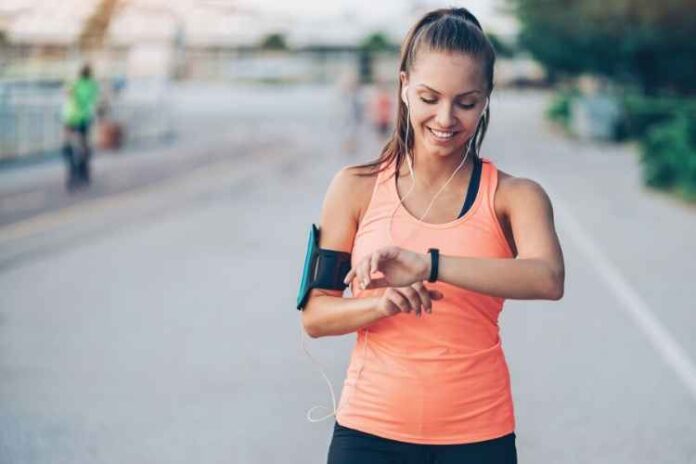The first time we heard of wearable tech was when Apple brought out their Apple watch in September 2014. The watch was described as a ‘comprehensive health and fitness device’ which made it highly anticipated for many. This set the precedent for what to expect from wearable devices and smartwatches in particular, which was that it was not only for entertainment purposes, it could also assist with your health.
When the Apple Watch was first released, it came with many unproven claims and people had no idea what it would become. But as the technology developed we would see a wide range of smart and wearable devices. The first Apple watch focused mainly on communication and apps, with basic health features available. The watch didn’t have enough smart technology at the time which made it more of an accessory than an essential. Apple increased its focus on fitness and the sales of smartwatches continued to increase. The features offered even more health capabilities which include tracking steps, tracking heart rate and sleep patterns. People started using the watches to keep track of these aspects and use it to take with them to their doctors appointments.
The main places that it started to be used in healthcare were in sports medicine, cardiology and sleep medicine. Companies that are known for their smartwatches like Fitbit, Apple and Samsung included the main aspects of these fields in their smartwatch functions, which made a big impact on the medical world. Patients started bringing in the data collected by their smartwatches and this has now become the norm for doctors. Whether they approve or not, sports physicians, cardiologists and sleep doctors know that these smart watches are a new normal in their practice.
Cardiology
Once the FDA approved that an app on the Apple watch could detect irregular heart rhythms, it became an official medical device. Other smartwatches followed suit soon after. At first, doctors struggled to embrace these watches, fearing that it could lead to false and inaccurate readings but it has proven otherwise.
Patients who would previously not have been diagnosed with illnesses due to not wearing a heart monitor, were now able to get a diagnosis. There are conditions like atrial fibrillation, where the symptoms were not consistent and could show up randomly. Doctors generally struggled to diagnose people that had this illness which led to many having to have a device surgically implanted to monitor their heartbeat. Not only do these watches help cardiologists to monitor their patients at home, it allows patients to be more active in their own healthcare.
Sports Medicine
More people are using their smartwatches to keep track of their health, this includes aspects like steps, heart rate, workouts and logging runs. While people do this, many don’t bring these up at their doctors appointments. We’ve seen how a Managed Services Provider London businesses trust makes use of this kind of tech to help their medical based clients and customers. Most people don’t realize that this is something that could be helpful to bring up at a doctor’s appointment. These can be helpful for people to keep track of the amount of activity they do every day, which is beneficial to overall health.
We’ve all heard that it can be beneficial to reach 10,000 steps a day but most people have no idea where this comes from. When the Apple watch first came out, it only had a step counter. The main goal then became hitting targets and one of these targets was to reach 10,000 steps a day. Not to say that people should not aim for this goal, there are just not any benefits for reaching that specific number.
Sleep Medicine
People first started using their smartwatches to track their sleep around 10 years ago. Many patients would be booking their first appointments because of the data collected by their smartwatches. Fitbit was one of the first devices to monitor sleep and is still one of the most popular sleep trackers.
The main problem people have with sleep trackers is that they aren’t sure what to do with the information they now have. For many doctors it allows them to gain further insight into why their patients started tracking their sleep at all. It has been found that people who use sleep devices have a more accurate understanding of their body and their health and fitness needs.


